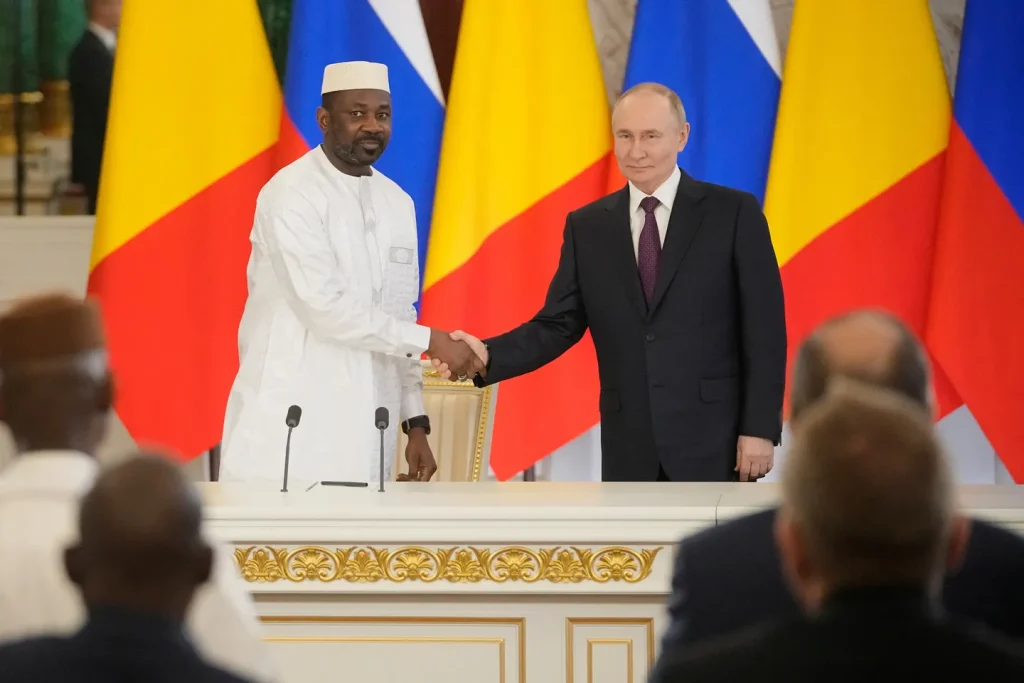Mali has expanded its partnership with Russia by signing several new agreements aimed at strengthening trade, energy, and infrastructure development. The accords were finalized on Monday during a two-hour meeting in Moscow between Mali’s interim president, Colonel Assimi Goita, and Russian President Vladimir Putin.
The discussions at the Kremlin led to a series of cooperation deals, including one focused on the peaceful use of nuclear energy. This move marks a continuation of both countries’ efforts to broaden their strategic collaboration following a steady shift in Mali’s international alliances.
Goita’s visit to Moscow signals Mali’s ongoing commitment to reducing dependence on Western partners and deepening ties with Russia. Since assuming power through military takeovers in 2020 and 2021, Goita has prioritized sovereignty over the country’s economic and security affairs, increasingly turning to Moscow for support.
Among the new initiatives is a plan to develop a Russian-designed low-power nuclear plant, which has been part of previous discussions between the two governments. This project could help address Mali’s energy challenges and support broader industrial development.
Earlier this month, construction began on a Russian-supported gold refinery in Mali. The facility is intended to boost the country’s control over its mineral wealth. Despite being one of Africa’s leading gold producers, Mali currently lacks an internationally certified refinery. Goita has emphasized that the project will allow Mali to process its resources locally and reduce reliance on external entities.
Although trade between the two countries remains relatively modest, President Putin stated that the relationship is steadily improving. He identified key sectors for future cooperation, including geological exploration, natural resource development, energy, logistics, and humanitarian work.
The growing economic collaboration builds on expanding security ties. Following the withdrawal of French and UN troops, who had been assisting Mali’s army for over a decade, the Malian government sought new security partners. Russian military contractors have since been deployed to support national forces in efforts to counter armed groups threatening the country’s stability.
While Russia’s Wagner Group recently announced its withdrawal from Mali, the Kremlin-linked African Corps continues to operate on the ground, maintaining Moscow’s security presence in the country.
The latest agreements reflect a broader shift in Mali’s international relations and signal a long-term partnership with Russia focused on strengthening sovereignty, economic resilience, and infrastructure development.



